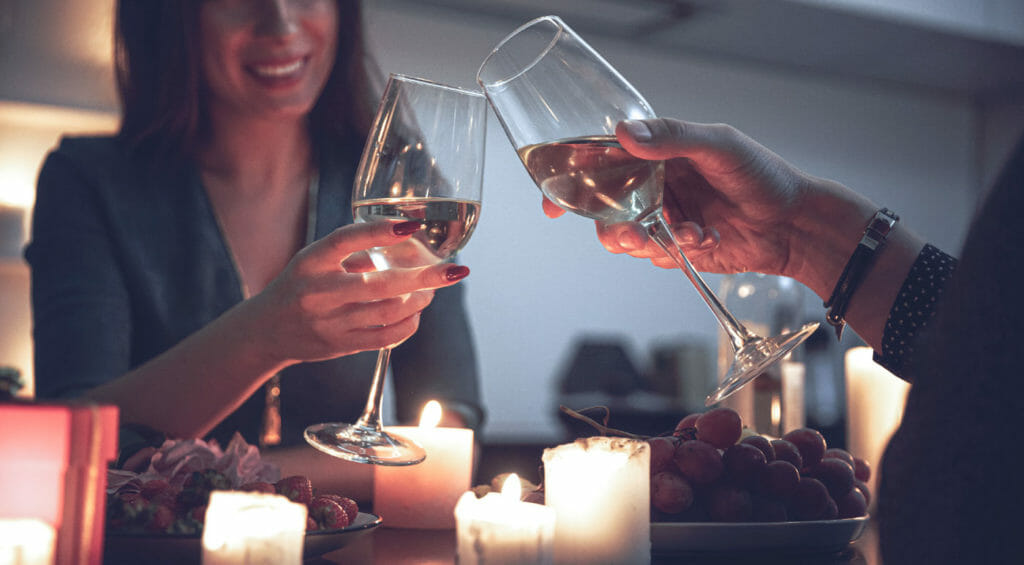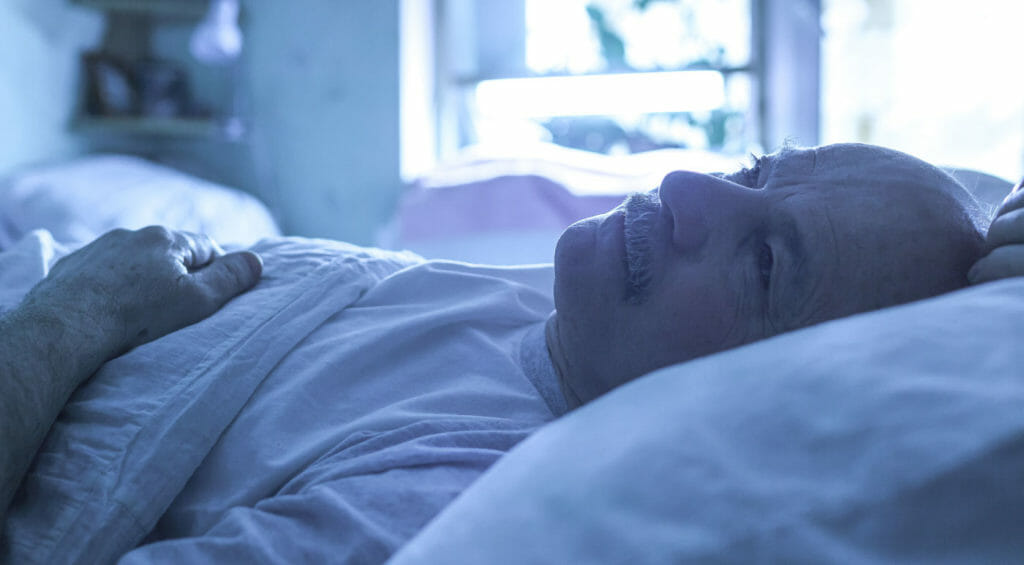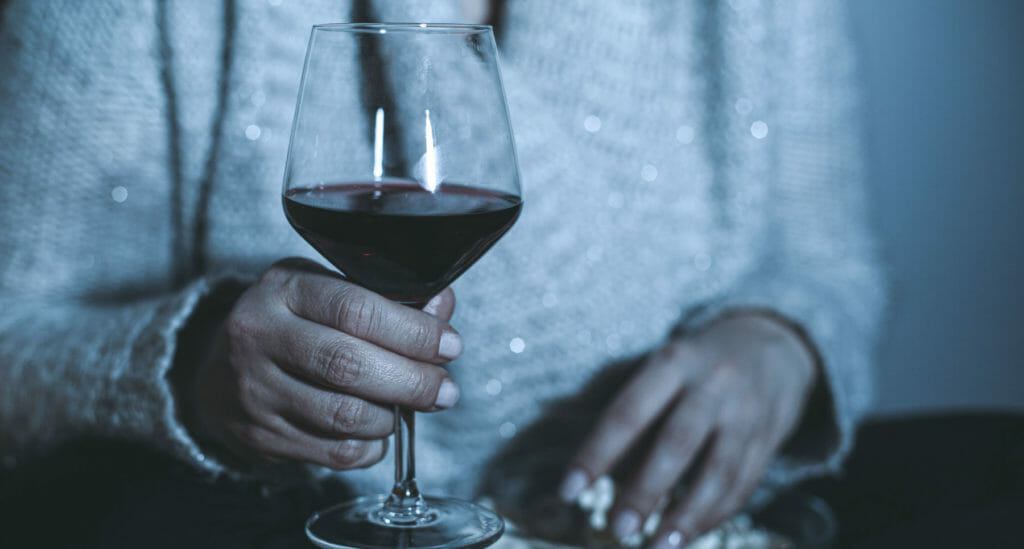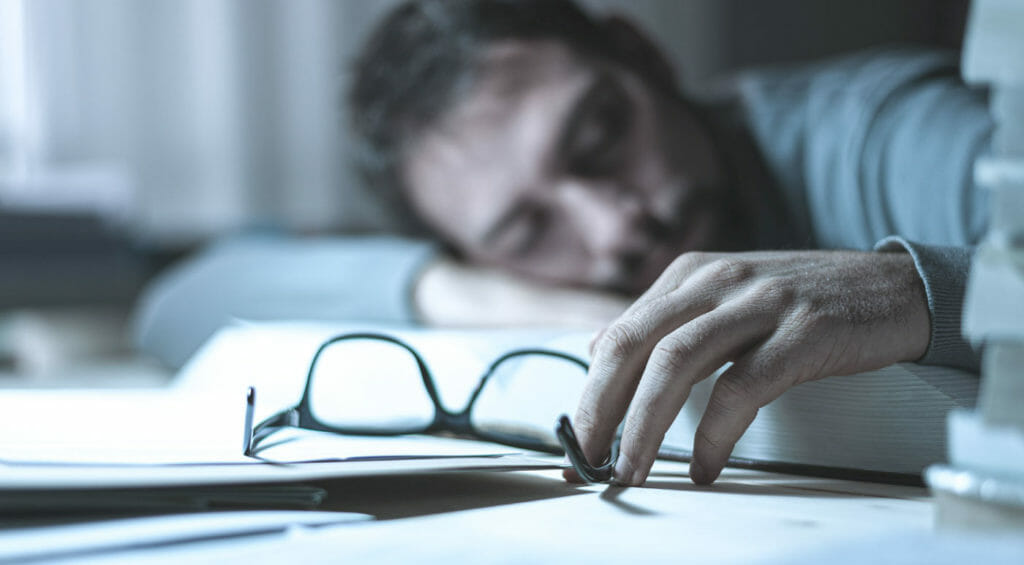
According to the 20% or so of Americans who use alcohol to help them nod off, it certainly seems that alcohol does help you sleep. But is drinking alcohol really the answer to gaining great ZZZs? And, does alcohol-induced slumber offer the same benefits to your brain and body as natural sleep? It’s time to take a deeper dive to explore the real impacts of alcohol on sleep, and if, in fact it, helps or hurts.
Alcohol Does Help You Sleep
If you’ve ever ingested any type of alcoholic beverage, you’re probably familiar with the feeling of fatigue or sleepiness that can set in during or after drinking. Since alcohol is a depressant and down-regulates the body, even moderate drinking can have a sedating effect. In fact, alcohol seems to boost adenosine, a chemical that helps induce sleepiness.
Consequently, alcohol can reduce the time it takes to fall asleep. Some studies even suggest that a nightcap can lead to an increase in deep sleep during the first half of the night. So does alcohol help you sleep? You bet it does. Woohoo and score a big one for the helpful combo of sleep and popping the cork or going for a cold one! You get to fall asleep faster and have more deep sleep during the first half of the night! In fact, these results rival finding an amazing mattress to sleep on for great, restorative sleep! Or do they?
Yikes, It Hurts

While alcohol does help you get to sleep faster, and may even provide more deep sleep in the first half of the night, that’s not the whole story (surprise!). According to Psychology Today, during the second half of the night, sleep becomes more actively disrupted. As alcohol is metabolized and its sedative effects dissipate, the body undergoes what scientists call a rebound effect. This includes a move from deep to lighter sleep, and more awakenings and sleep disruptions during the second half of the night.
Surely, tossing and turning a bit in the middle of the night isn’t all that terrible, right? Think again. For one thing, the awakenings (which are frequently accompanied by alcohol-induced sweating), disrupt REM sleep — which is essential for learning, memory, focus, creativity, and problem solving. Consequently, poor or too little REM sleep during the night can lead to problems functioning the next day at work or at home. And the funny thing is, if your REM sleep is thrown off, your entire sleep schedule gets out of whack.
Moreover, in a study conducted by Harvard University, alcohol raises epinephrine (aka adrenaline) in the body. And that can cause middle-of-the-night awakenings and real difficulty falling back to sleep. The last thing you want in the wee hours of the night is for your body to be loaded with stress hormones! And it stands to reason that all alcohol-related symptoms are influenced by the amount you drink. In short, the more you booze, the more you lose! Play it smart, and learn to calculate your blood alcohol level.
I Gotta Pee
Okay, so we all know that drinking too much of anything before going to sleep will cause you to wake up in the middle of the night to use the bathroom. Alcohol, though, is a diuretic — and, as such, will likely create an even greater need to wake up and void. Getting up multiple times during the night to pee is yet another disturbance to REM sleep. Plus, since alcohol is a diuretic, it causes dehydration in your body. Maintaining proper hydration, in addition to every other reason why it’s important, is also critical for a restorative night of sleep.
Oh My Goodness, What Else?

I’m so glad you asked! Have a look at some other detriments alcohol may have on you, your body, and your sleep.
Alcohol can:
- Cause muscle relaxation in your throat, which makes you more prone to snoring and sleep apnea, a potentially serious condition
- Trigger new sleep disorders or exacerbate existing ones, like insomnia, sleepwalking and sleep talking
- Suppress melatonin, aka the sleep hormone
- Worsen liver function, gut health, and depression
- Exacerbate hot flashes
- Increase Restless Legs Syndrome
- Lead to next-day fatigue
Women, Beware
In addition to increasing hot flashes and night sweats, alcohol also seems to have a more general detrimental impact on women compared to men. According to the National Institute on Alcohol Abuse and Alcoholism, women appear to be more vulnerable than men to many adverse consequences of alcohol use. Women achieve higher concentrations of alcohol in the blood and become more impaired than men after drinking equivalent amounts of alcohol.
Furthermore, in a study conducted at Boston Medical Center, after a night of controlled alcoholic and non-alcoholic drinking by both women and men, where body weight and age were factored in and equal states of inebriation achieved, women woke up more times during the night, stayed awake longer, and slept for less time overall. Men, before exchanging high fives, please take note that this is not your green light to mix boozing with sleeping. Alcohol messes with sleep, regardless of your gender.
How to Drink Alcohol and Sleep Well Too

While bypassing alcohol consumption altogether may be your surest bet to protect your REM sleep and sleep overall, there are options that can help negate the negative impacts of booze on your snooze.
- Keep your alcohol consumption to two drinks a night or less.
- Consider changing nightly imbibing to every other night.
- Drink an 8 ounce glass of water between every alcoholic beverage; especially if you’re having more than two drinks.
- Stick with the early- and mid-evening hours when drinking, while avoiding morning or early daytime.
- Stop drinking alcohol at least two to three hours before going to bed.
The Verdict
Drinking alcohol does help you get to sleep and even enter deep sleep faster during the first half of the night. Despite this, the truth is that even moderate drinking is more likely to create problems than offer solutions. Quite simply, the more you drink at night, the greater the negative impacts of alcohol are on your brain, body, and sleep.
Unfortunately, alcohol tricks people into thinking they’re sleeping better than they really are. No matter how you slice it, conking out from alcohol is not the same thing as natural, restorative sleep. Its role as a sedating sleep aide by many is, therefore, misguided. Cutting back on alcohol consumption, as well as drinking water between alcoholic beverages to offset dehydration, can go a long way to reduce the negative impact alcohol can have on your sleep.